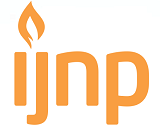Web-Based Counseling Problem-Solving Model for Improving Mental Health in Students During the Covid-19 Pandemic
DOI:
https://doi.org/10.18196/ijnp.v7i1.18356Keywords:
College Students, covid-19 pandemic, mental health, web-based counseling problem-solving modelAbstract
Background: There was an increase of mental health problems during the Covid-19 Outbreak caused by fears of contracting COVID-19, Increasing mental health problems in college students due to the Covid-19 outbreak caused by fears of contracting COVID-19, difficulty understanding online learning materials, decreased academic achievement, limited activities, finances, and boredom during the stay at home.
Objective: To analyze a web-based problem-solving counseling model to improve mental health in students during the Covid-19 pandemic.
Method: Quasi-experimental design using a pre-post test with a control group. The population was all first-year students at Surakarta College of Health, who were sampled with a purposive sampling technique. Inclusion criteria: students who were experiencing anxiety, stress, depression, and suicide risk. There were a total of 60 respondents in the control group and 60 respondents in the intervention group. Data was collected using thequestionnaires Suicide Behavior Questioner-Revisi (SBQ-R) and Depression Anxiety Stress Scales (DASS). The web application intervention consisted of up-to-date testimonials, questionnaires, inspirational videos, and counseling options. The tests used were the dependent test and the independent test.
Result: There was a significant improvement of participant mental health with and results found a reduction to the the risk of suicide, depression, stress, and anxiety.
Conclusion: The Web-Based Problem-Solving Counseling Model is effective in improving students' mental health during the COVID-19 pandemic( p<0.05), and can be used as an alternative strategyfor students to address their mental health problems while maintaining privacy and low levels of stigma.References
Andersson, G., Cuijpers, P., Carlbring, P., Riper, H., & Hedman, E. (2014). Guided Internet-based vs. face-to-face cognitive behavior therapy for psychiatric and somatic disorders: A systematic review and meta-analysis. In World Psychiatry (Vol. 13, Issue 3, pp. 288–295). https://doi.org/10.1002/wps.20151
Bartlett, A., Smith, J. G., Warner, L., & Hales, H. (2021). Young men and young women in secure care: gender differences in the placement of those with mental health needs. BMC Psychiatry, 21(1), 1–10. https://doi.org/10.1186/s12888-021-03440-7
Bhakat, P., & Das, K. (2023). Status of mental health among college and university students during first and second wave of COVID-19 outbreak in India: A cross-sectional study. Journal of Affective Disorders Reports, 12(September 2021), 100494. https://doi.org/10.1016/j.jadr.2023.100494
Breitborde, N. J. K., Wastler, H., Pine, J. G., & Moe, A. M. (2021). Suicidality and social problem-solving skills among individuals with first-episode psychosis participating in Coordinated Specialty Care. Early Intervention in Psychiatry, 15(3), 497–504. https://doi.org/10.1111/eip.12967
Calista, A. P., Sriatmi, A., & Budiyanti, R. T. (2020). Pengaruh Dukungan Sosial dan Proses Adaptasi dengan Status Kesehatan Mental Ibu Rumah Tangga Akibat Kebijakan Pembatasan Sosial Berskala Besar di Kota Jakarta Timur. Jurnal Manajemen Kesehatan Indonesia, 8(3), 197–206. https://doi.org/10.14710/jmki.8.3.2020.197-206
Chaturvedi, K., Vishwakarma, D. K., & Singh, N. (2021). COVID-19 and its impact on education, social life and mental health of students: A survey. Children and Youth Services Review, 121(December 2020), 105866. https://doi.org/10.1016/j.childyouth.2020.105866
Ebert, D. D., Auerbach, R., Cuijpers, P., Demyttenaere, K., Buntrock, C., Weisel, K. K., Green, J. G., Bruffaerts, R., Mortier, P., Kessler, R. C., Kiekens, G., & Nock, M. K. (2018). Prediction of major depressive disorder onset in college students. March, 1–11. https://doi.org/10.1002/da.22867
Ela, M. Z., Shohel, T. A., Shovo, T. E. A., Khan, L., Jahan, N., Hossain, M. T., & Islam, M. N. (2021). Prolonged lockdown and academic uncertainties in Bangladesh: A qualitative investigation during the COVID-19 pandemic. Heliyon, 7(2). https://doi.org/10.1016/j.heliyon.2021.e06263
Garnier-villarreal, M. (2019). Mediating Effects of Positive Thinking and Social Support on Suicide Resilience. Western Journal of Nursing Research, Vol. 41(1), 25 –41. https://doi.org/10.1177/0193945918757988
Hastuti, M. M. S., & Tyas, P. H. P. (2021). Online Media Usage in Guidance and Counseling Services during Covid-19 Pandemic. Jurnal Kajian Bimbingan Dan Konseling, 6(2), 60–70. https://doi.org/10.17977/um001v6i22021p060-070
Heim, E., Rötger, A., Lorenz, N., & Maercker, A. (2018). Working alliance with an avatar : How far can we go with internet interventions ? Internet Interventions, 11(January), 41–46. https://doi.org/10.1016/j.invent.2018.01.005
Hoda, F. S., Mahoklory, S. S., Pello, Y. K., & Riti, I. F. (2022). Association Between Family Support and Nurse Motivation in Managing Patients with COVID-19. IJNP (Indonesian Journal of Nursing Practices), 5(2), 123–131. https://doi.org/10.18196/ijnp.v5i2.13352
Huang, J., Nigatu, Y. T., Smail-Crevier, R., Zhang, X., & Wang, J. (2018). Interventions for common mental health problems among university and college students: A systematic review and meta-analysis of randomized controlled trials. Journal of Psychiatric Research, 107, 1–10. https://doi.org/10.1016/j.jpsychires.2018.09.018
Huang, S., Wang, D., Zhao, J., Chen, H., Ma, Z., Pan, Y., Liu, X., & Fan, F. (2022). Changes in suicidal ideation and related influential factors in college students during the COVID-19 lockdown in China. Psychiatry Research, 314(November 2021), 114653. https://doi.org/10.1016/j.psychres.2022.114653
Insiyah, Sulistyowati, E. C., & Ghoniy, Z. A. (2023). Prediktor Stres, Kecemasan, Dan Kelelahan Psikologi Pada Mahasiswa Keperawatan Di Era Pandemi Covid-19. Intan Husada : Jurnal Ilmiah Keperawatan, 11(01), 31–41. https://doi.org/10.52236/ih.v11i1.261
Kang, J. H. Y., Mason, R. N., & Tarshis, T. P. (2020). 51.14 Relationship Between Religion/Spirituality and Mental Health in Youth During Covid-19. Journal of the American Academy of Child & Adolescent Psychiatry, 59(10), S255. https://doi.org/10.1016/j.jaac.2020.08.424
Karim, S. K., Taha, P. H., Mohammad, N., Amin, M., & Ahmed, H. S. (2020). COVID-19-related anxiety disorder in Iraq during the pandemic : an online cross- sectional study. 4. https://doi.org/10.1186/s43045-020-00067-4
Kemenkes RI. (2020). Keputusan menteri kesehatan republik indonesia nomor hk.01.07/menkes/413/2020 tentang pedoman pencegahan dan pengendalian. 2019.
Khadijah, S., Yusuf, A., Nihayati, H. E., & Yunitasari, E. (2021). The Influence of Web-Based Spiritual Problem Solving on the Prevention of Suicidal Risk among University Students. Jurnal Ners, 16(2), 142–147. https://doi.org/10.20473/jn.v16i2.23921
Kharisma, V. G., & Astuti, B. (2019). Efektivitas Metode Problem Solving Melalui Konseling Kelompok Untuk Meningkatkan Regulasi Diri Siswa. Jurnal Psikologi Pendidikan Dan Konseling: Jurnal Kajian Psikologi Pendidikan Dan Bimbingan Konseling, 5(1), 20. https://doi.org/10.26858/jppk.v5i1.8015
Lin, T., Ko, H., Wu, J. Y., Oei, T. P., Lane, H., & Chen, C. (2018). Archives of Suicide Research The Effectiveness of Dialectical Behavior Therapy Skills Training Group Vs . Cognitive Therapy Group on Reducing Depression and Suicide Attempts for Borderline Personality Disorder in Taiwan The effectiveness of dialectical be. 1118. https://doi.org/10.1080/13811118.2018.1436104
Lischer, S., Safi, N., & Dickson, C. (2021). Remote learning and students’ mental health during the Covid-19 pandemic: A mixed-method enquiry. Prospects, January. https://doi.org/10.1007/s11125-020-09530-w
Lovell, G. P., D, P., Nash, K., P, S., Sharman, R., D, P., Lane, B. R., & P, S. (2015). A cross-sectional investigation of depressive , anxiety , and stress symptoms and health-behavior participation in Australian university students. 134–142. https://doi.org/10.1111/nhs.12147
Lu, W., Bian, Q., & Song, Y. (2015). Prevalence and Related Risk Factors of Anxiety and Depression among Chinese College Freshmen. 35(6), 815–822. https://doi.org/10.1007/s11596-015-1512-4
Luca, S. M. De, Lytle, M. C., & Yan, Y. (2019). Help-Seeking Behaviors and Attitudes of Emerging Adults : How College Students Reporting Recent Suicidal Ideation Utilize the Internet Compared to Traditional Resources. Journal of American College Health, 1–8. https://doi.org/10.1080/07448481.2018.1539397
Lucas, A. G., Chang, E. C., Li, M., Chang, O. D., & Hirsch, J. K. (2019). Perfectionism and Social Problem Solving as Predictors of Nonsuicidal Self-Injury in Ethnoracially Diverse College Students: Findings Controlling for Concomitant Suicide Risk. Social Work (United States), 64(2), 165–174. https://doi.org/10.1093/sw/swz005
Lutz, J., Mashal, N., Kramer, A., Suresh, M., Gould, C., Jordan, J. T., Wetherell, J. L., & Beaudreau, S. A. (2020). A Case Report of Problem Solving Therapy for Reducing Suicide Risk in Older Adults with Anxiety Disorders. Clinical Gerontologist, 43(1), 110–117. https://doi.org/10.1080/07317115.2019.1617378
Morin, A. (2021). Best Online Anxiety Support Group of 2021. 8 August 2021.
Munar. (2018). Dahsyatnya Mindset Afirmasi. Deepublish CV Budi Utama.
Nii, E., Quarshie, B., Vera, H., Plange, C., Annor, F., Doku, W. A., King, J., & Lartey, S. (2019). Prevalence of suicidal behaviour among nursing and midwifery college students in Ghana. July 2018, 1–10. https://doi.org/10.1002/nop2.271
Novitasari, I. (2015). Gambaran Tingkat Kecemasan, Stres, Depresi dan Mekanisme Koping Pasien Penyakit Ginjal Kronik yang Menjalani Hemodialisa di RSUD Dr. Moewardi. Skripsi, 1–73
Nurjanah, S., Kesehatan, F. I., Purwokerto, U. M., Kulon, S., Banyumas, K., & Tengah, J. (2020). Gangguan mental emosional pada klien pandemi covid 19 di rumah karantina (Vol. 3, Issue 3). Universitas Muhammadiyah Purwokerto.
Pieter, H. ., & Lubis, N. . (2017). Pengantar Psikologi dalam Keperawatan (3rd ed.). PT Kharisma Putra Utama.
Rahma, S. (2005). Pengaruh Latihan Pasrah Diri Terhadap Tingkat Stres dan Kadar Gula Darah pada Pasien Diabetes Melitus Tipe 2 di Rumah Sakit PKU Muhammadiyah Yogyakarta. Mohamadiyah Journal of Nursing, 1, 78–91.
Rajkumar, E., Rajan, A. M., Daniel, M., Lakshmi, R., John, R., George, A. J., Abraham, J., & Varghese, J. (2022). The psychological impact of quarantine due to COVID-19: A systematic review of risk, protective factors and interventions using socio-ecological model framework. Heliyon, 8(6), e09765. https://doi.org/10.1016/j.heliyon.2022.e09765
Rantanen, T., Gluschkoff, K., Silvennoinen, P., & Heponiemi, T. (2021). The associations between mental health problems and attitudes toward web-based health and social care services: Evidence from a finnish population-based study. Journal of Medical Internet Research, 23(9). https://doi.org/10.2196/28066
Rogowska, A. M., Ochnik, D., Kuśnierz, C., Chilicka, K., Jakubiak, M., Paradowska, M., Głazowska, L., Bojarski, D., Fijołek, J., Podolak, M., Tomasiewicz, M., Nowicka, D., Kawka, M., Grabarczyk, M., & Babińska, Z. (2021). Changes in mental health during three waves of the COVID-19 pandemic: a repeated cross-sectional study among polish university students. BMC Psychiatry, 21(1), 1–15. https://doi.org/10.1186/s12888-021-03615-2
Schimelpfening, N. (2020). Why Depression Is More Common in Women Than in Men. Verywell Mind. https://www.verywellmind.com/why-is-depression-more-common-in-women-1067040
Sherchan, S., Samuel, R., Marahatta, K., Anwar, N., Van Ommeren, M. H., &, & Ofrin, R. (2017). Post-disaster mental health and psychosocial support: experience from the 2015 Nepal earthquake. WHO South-East Asia Journal of Public Health. https://doi.org/https://doi.org/10.4103/2224- 3151.206160
Stickley, A., & Ueda, M. (2022). Loneliness in Japan during the COVID-19 pandemic: Prevalence, correlates and association with mental health. Psychiatry Research, 307(May 2021), 114318. https://doi.org/10.1016/j.psychres.2021.114318
Wharton W, Gleason CE, Olson SR, Carlsson CM, A. S. (2012). Neurobiological Underpinnings of the Estrogen - Mood Relationship. Curr Psychiatry Rev, 8(3), 247–256. https://doi.org/doi:10.2174/157340012800792957
Zuelke, A. E., Luppa, M., Löbner, M., Pabst, A., Schlapke, C., Stein, J., & Riedel-Heller, S. G. (2021). Effectiveness and Feasibility of Internet-Based Interventions for Grief after Bereavement: Systematic Review and Meta-analysis. JMIR Mental Health, 8(12), 1–14. https://doi.org/10.2196/29661
Downloads
Additional Files
Published
Issue
Section
License
License
Articles published in the IJNP (Indonesian Journal of Nursing Practices) are licensed under a Attribution 4.0 International (CC BY 4.0) license. You are free to:
- Share — copy and redistribute the material in any medium or format.
- Adapt — remix, transform, and build upon the material for any purpose, even commercially.
This license is acceptable for Free Cultural Works. The licensor cannot revoke these freedoms as long as you follow the license terms. Under the following terms:
Attribution — You must give appropriate credit, provide a link to the license, and indicate if changes were made. You may do so in any reasonable manner, but not in any way that suggests the licensor endorses you or your use.
- No additional restrictions — You may not apply legal terms or technological measures that legally restrict others from doing anything the license permits.
Copyright
Authors who publish with IJNP (Indonesian Journal of Nursing Practices) agree to the following terms:
- Authors retain copyright and grant IJNP (Indonesian Journal of Nursing Practices) the right of first publication with the work simultaneously licensed under an Attribution 4.0 International (CC BY 4.0) that allows others to remix, adapt and build upon the work with an acknowledgment of the work's authorship and of the initial publication in IJNP (Indonesian Journal of Nursing Practices).
- Authors are permitted to copy and redistribute the journal's published version of the work (e.g., post it to an institutional repository or publish it in a book), with an acknowledgment of its initial publication in IJNP (Indonesian Journal of Nursing Practices).














